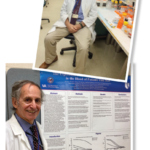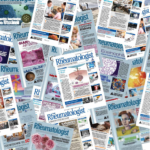Inhibiting tumor necrosis factor may be okay for five years, but after 10 years, cancer cells may stir in what for them is a salutary environment, where tumor-killing macrophages slumber and sleep. Alternately, bones may suffer catastrophic collapses due to prior microfractures that could not be healed because osteoclasts had been pummeled into submission by bisphosphonates.
In coming issues, The Rheumatologist will increase its coverage of drug safety. The goal of these articles will be to present emerging information on the crucial issues of risks and benefits of drugs currently in use. We want to inform and alert you about data to allow you and your patients to make the best decisions in the face of what will always be uncertainty.
Another of Pisetsky’s rules of drug therapy is that drug safety is a personal matter. In a future column, I will discuss what I think you can do to make the treatment of rheumatologic disease safer.
Dr. Pisetsky is physician editor of The Rheumatologist and professor of medicine and immunology at Duke University Medical Center in Durham, N.C.


